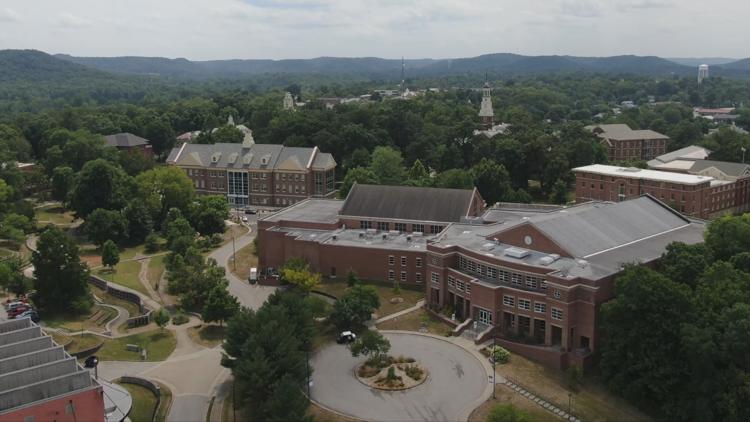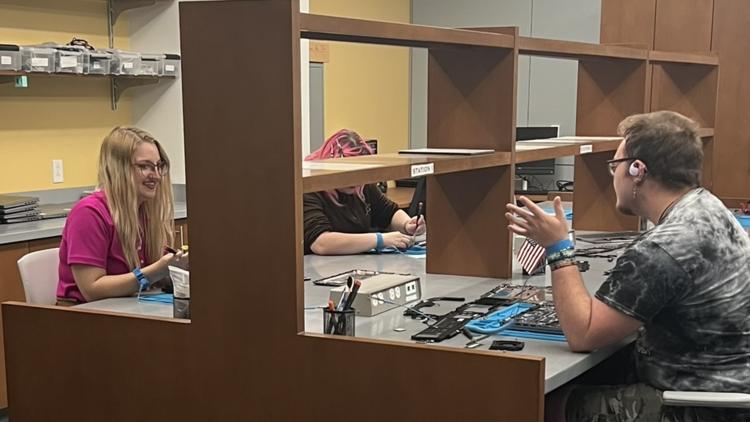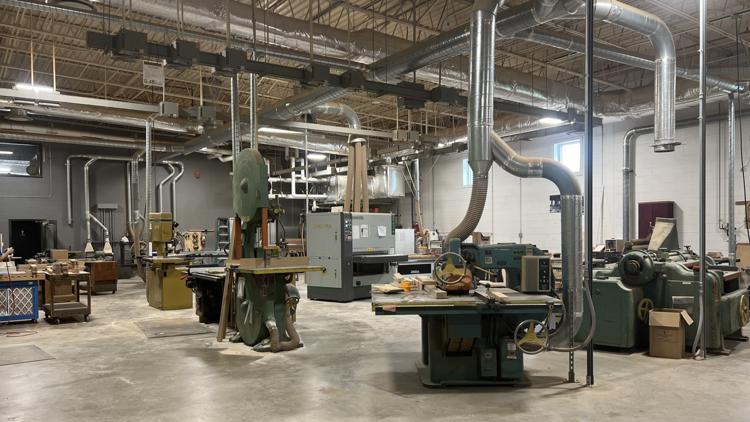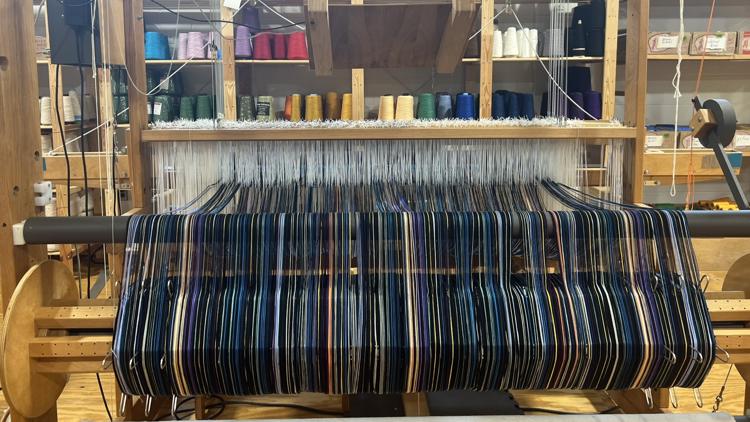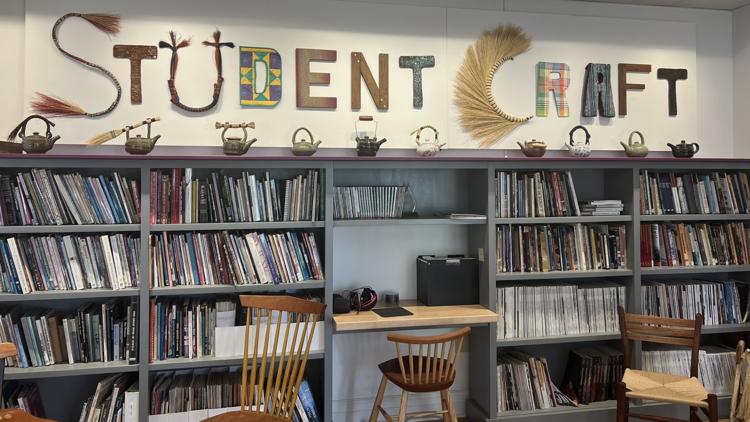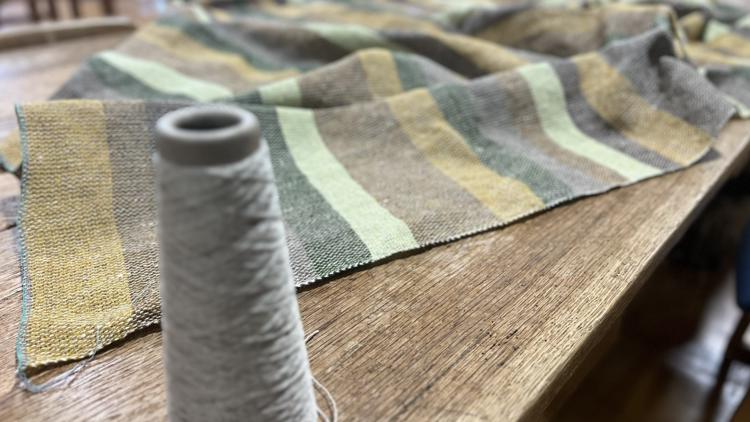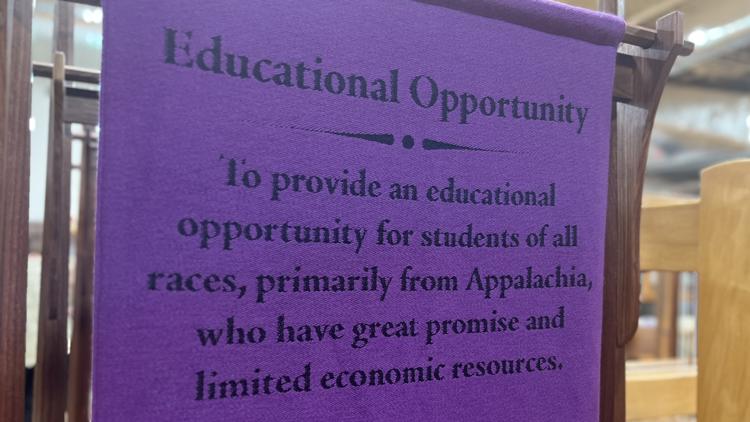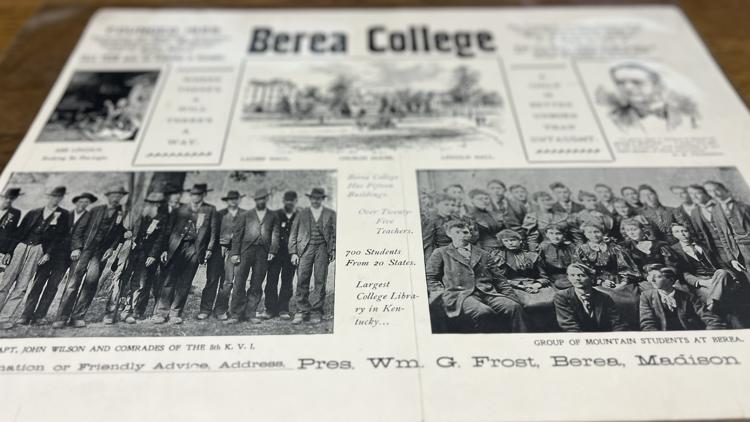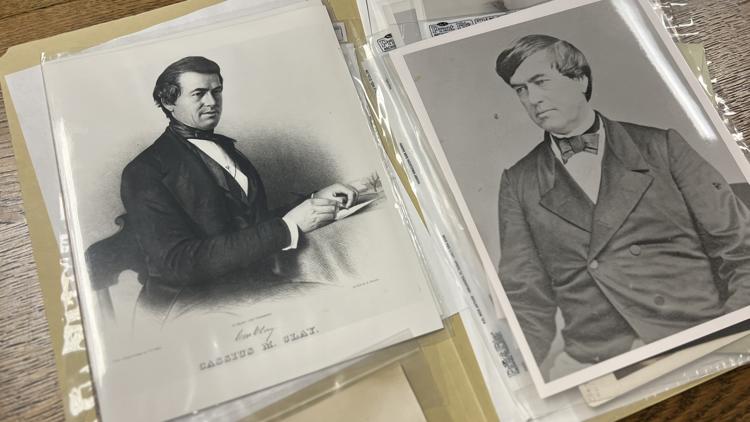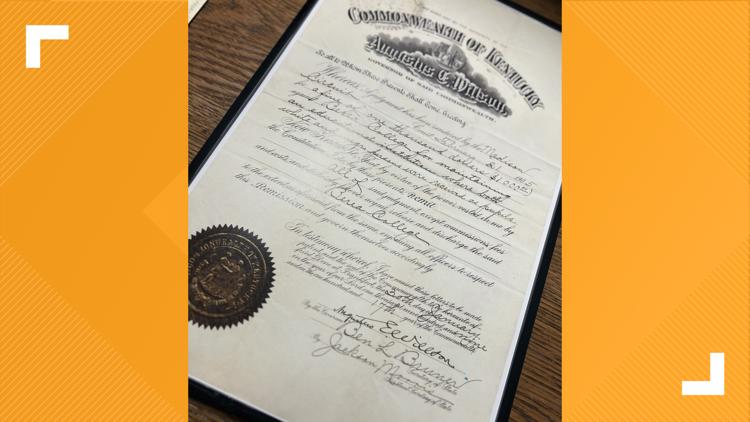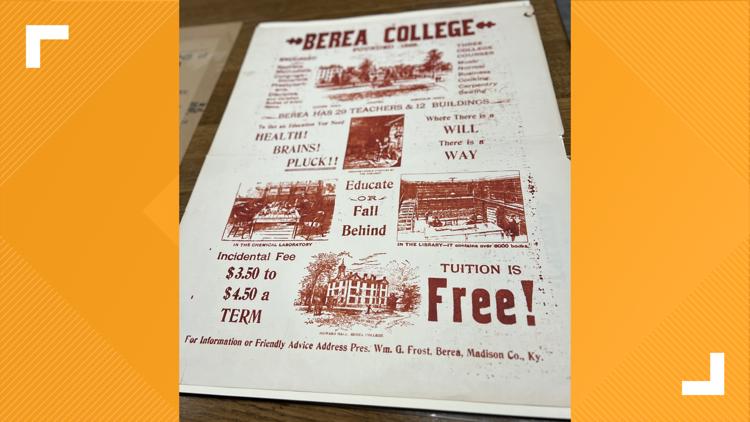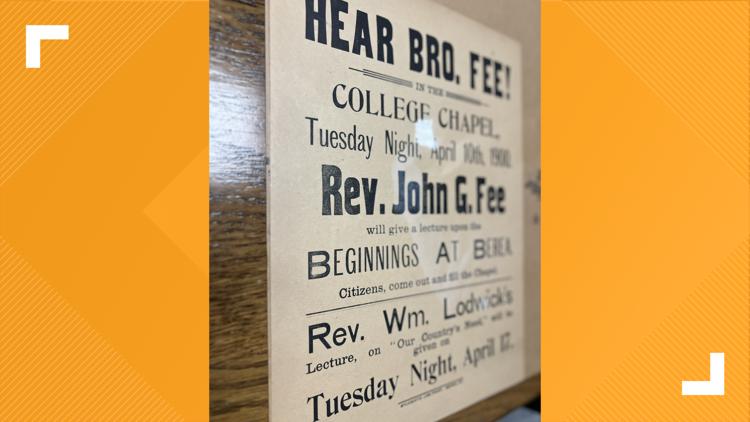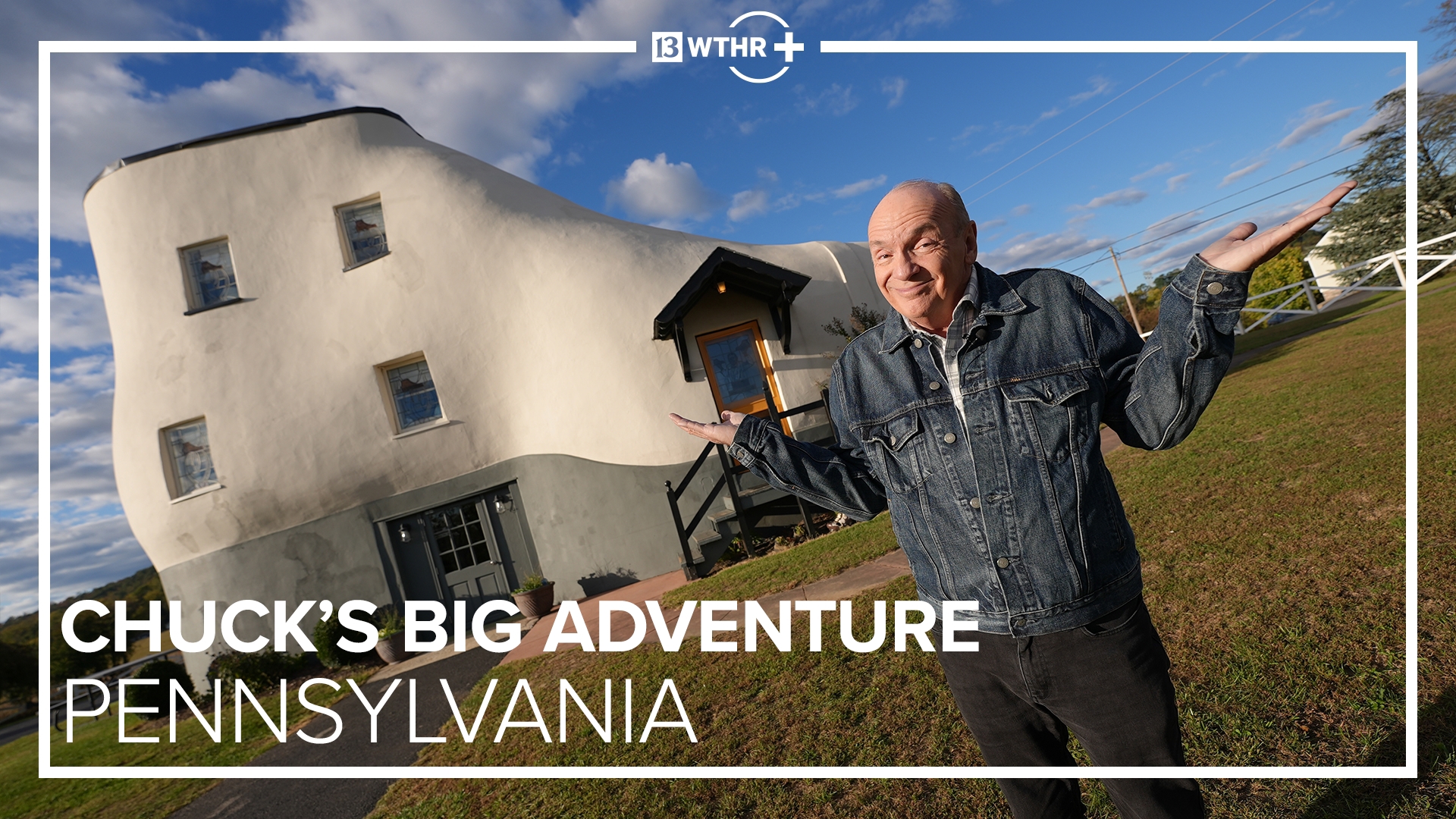KENTUCKY, USA — It has been a symbol of hope in Kentucky for generations. Berea College has served as a place where Kentucky's most underserved and financially challenged students could get an education and a chance at making a future. Berea was the South’s first integrated, co-educational college — and since 1892, has not charged students a dime for tuition.
Luke Hodson, during his Berea College basketball days, scored 1,000 career points. Now, he is helping students score a better life.
"When you think of who we serve and our history, oftentimes say it's a bold history that leads to a bright future for the students that we serve, and it's hard to find another institution that provides just the combination of the experience coupled with the support and phenomenal financial aid," Hodson said. "When you put all that in motion, our students are set up well for graduation."

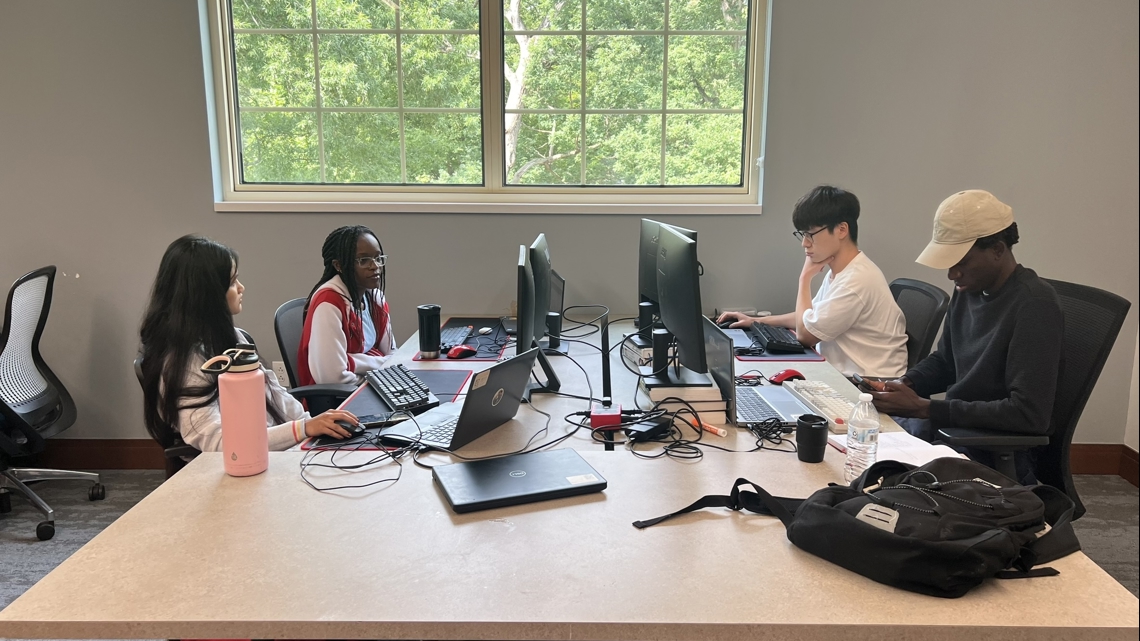
Without Berea, Hodson feels that many current students would find it hard to escape the poverty they face daily.
"Ninety-five percent of our student body received a Pell Grant, which would be an indication that they're coming from very limited financial resources. You know, the average household income of our student body is around $32,000 a year for the entire year for that family. When you put those two financial metrics in play, you would think, OK, well, these students are coming from certainly very limited kind of backgrounds," Hodson said. "That's true, but what's great about our student body is just the promise that they bring, the grit that they bring, the desire to do better than what maybe their family's been able to do before them. You're going to find students who are top notch academically, who are scholars in their own right, who are looking for an opportunity like Berea can offer where the support here is going to be much more intense, much more supportive than what they may find in other institutions."
Chuck's Big Adventure in Kentucky: Berea College
Berea was founded before the Civil War by ardent abolitionist John G. Fee. That spirit of including everyone in the mix is still here today.
Brian Ramsey is a software engineer for Berea, and not only teaches software to students but helps prepare them for the future with real-life experiences. It makes Berea unique in that regard but a generational Berean, Ramsey believes that is part of the appeal.
"My Berea story, I guess, starts when my grandparents met here in the '50s. They met as students, got married. My grandpa came back in the '70s to be the dean of labor at Berea, and so my dad, most of his siblings, attended Berea College, and so I have aunts and uncles on both sides of the family here," Ramsey said. "When my dad was in school in the late '70s and early '80s was when the first computers were coming in, and he and some other students helped write the financial software for the college. And so fast forward 45 years, there's another program at the college where students are writing software and doing work, getting real experience on a software team."
Chuck's Big Adventure in Kentucky: Berea College archives
It is that work element that sets Berea apart. Every student works, and that work helps pay for their education but also gives them much-needed experience to prepare them for the workforce.
Tim Binkley, head of special collections and archives, makes sure the history of this place is intact from its founding to its unique endowment.
“From the beginning, some students didn't have the money to come to school here, and so they paid by working in the homes of community leaders and by working for the school, it was not an uncommon thing for students to pay for their tuition in that way. The other problem with that, though, was that students often had to take classes one term and then take a term off to take a job outside and earn some money and then come back, so your four-year college could be a 10-year experience, as it was for Carter G. Woodson, one of our very important graduates. He spent about 10 years getting his undergraduate degree, but he achieved that and went on to become a great African American scholar who was the founder of Black History Month," Binkley said. "So by 1892, the trustees of the school decided no student should have to pay tuition because they were really trying. This was not a school for elites. This was a school for people, kind of on the margins, economically, white and Black men and women. By the 1890s, they decided we have to pay the tuition, and the trustees took action to do that.”
Today, a sizeable endowment helps ensure the no-tuition pledge can continue for generations to come.
Historic Boone Tavern Hotel
No visit to Berea would be complete without visiting the Historic Boone Tavern Hotel and Restaurant. It was built in 1909 at the suggestion of Nellie Frost, the wife of the college president, William G. Frost. They had so many guests and dinners, she could not handle the work load.
Since the hotel became reality, the facility – named after Appalachian hero Daniel Boone – has been hosting visitors of Berea, Kentucky, ever since, including the Dalai Lama, Henry Ford, President and Mrs. Calvin Coolidge, Eleanor Roosevelt, Maya Angelou and Robert Frost.
It really serves two purposes: to provide quality lodging and food to guests of Berea, but also to give students an opportunity to fulfill their work requirements for the college. Boone Tavern is owned by Berea College, and its students are a vital part of the staff. Students are required to work at least 10 hours per week at any one of the work areas across campus. Boone Tavern is one of those areas. Students earn money for books and room and board at the college – but pay no tuition.
More of Chuck's Big Adventure in Kentucky:
- Chuck's Big Adventure in Kentucky: Visiting fabled horse parks
- Chuck's Big Adventure in Kentucky: Finding giants at Bernheim Forest
- Chuck's Big Adventure in Kentucky: Cabins on the cliffs and in the trees
- Chuck's Big Adventure in Kentucky: Rail Explorers
- Chuck's Big Adventure in Kentucky: Red River Gorge underground kayaking
- Chuck's Big Adventure in Kentucky: Visiting the Woodsongs Radio Hour broadcast
- Chuck's Big Adventure in Kentucky: Touring the Bluegrass Music Hall of Fame and Museum
- Chuck's Big Adventure in Kentucky: Rocking with Rick Faris
- Chuck's Big Adventure in Kentucky: Western Kentucky BBQ Trail
- Chuck's Big Adventure in Kentucky: Lake Cumberland — Houseboats
- Chuck's Big Adventure in Kentucky: National Corvette Museum, NCM Motorsports Park


